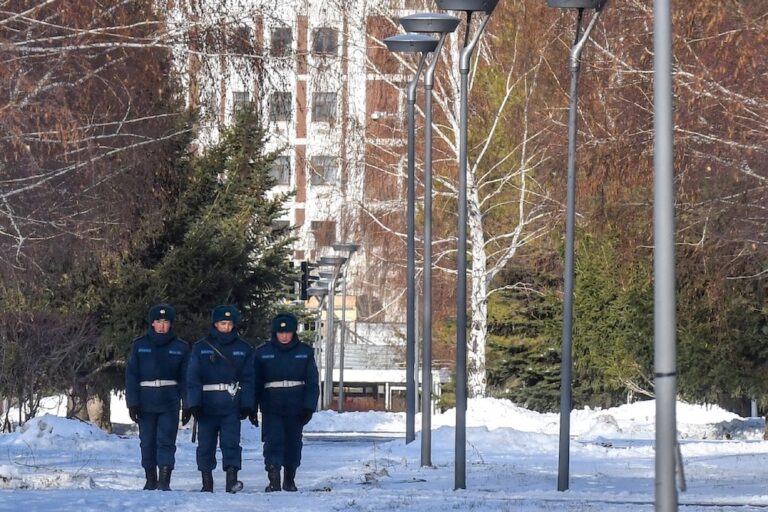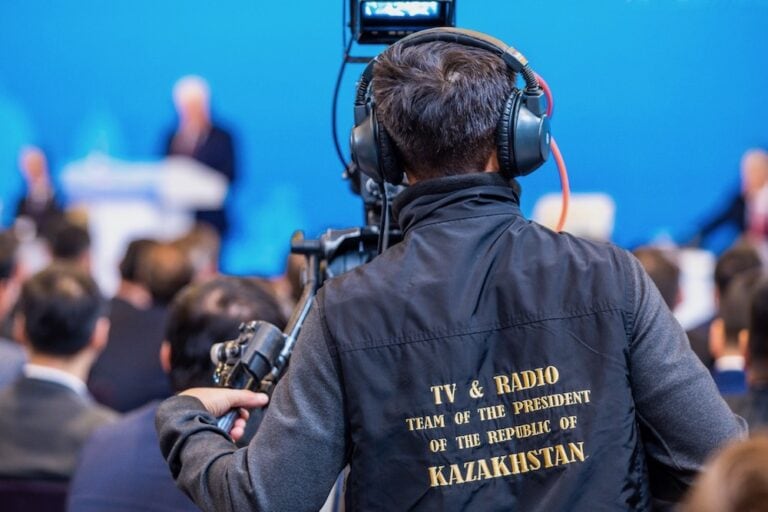(Adil Soz/IFEX) – The hearing of a lawsuit filed by Sergei Arhipov, the commander of a special police division, against PR-Agency Almaty International, which owns “Aina plus” newspaper, took place on 16 May 2006 at Medeu district court in Almaty. The lawsuit is in response to the 16 March publication of Arhipov’s photograph in the […]
(Adil Soz/IFEX) – The hearing of a lawsuit filed by Sergei Arhipov, the commander of a special police division, against PR-Agency Almaty International, which owns “Aina plus” newspaper, took place on 16 May 2006 at Medeu district court in Almaty.
The lawsuit is in response to the 16 March publication of Arhipov’s photograph in the newspaper. The photograph was published with the caption “Kara bet” (“Black page”). It appeared among the photographs of other law enforcement officers who had taken part in suppressing political protests.
In his lawsuit the plaintiff said his “photograph was used and distributed in order to discredit him.” Arhipov is suing the newspaper for one million tenge (approx. US$8,260) in damages. This is an amount big enough to cause the newspaper’s bankruptcy. Concurrently, law enforcement officer Almaz Chigebayev filed another lawsuit, also because his photograph was published in “Aina plus” newspaper.
The lawsuits are based on article 145 of the Civil Code of the Republic of Kazakhstan, which stipulates that “a work of art (picture, photograph, film and others) depicting a person should only be published and distributed with that person’s consent.”
“Aina plus” was suspended for three months by the Almaty specialised administrative inter-district court on 16 March for failing to reregister with the authorities, after changing its thematic focus (see IFEX alert of 24 April 2006).
Adil Soz has expressed its concern about the lawsuits. The Adil Soz foundation president’s assistant, Elena Malygina, said that “their photographs cannot be considered as discrediting the plaintiffs, because the caption was not the “black list,” but the “black page”, and both photographs were taken in public places; so we believe there are no legal grounds at all to file the lawsuits.”


